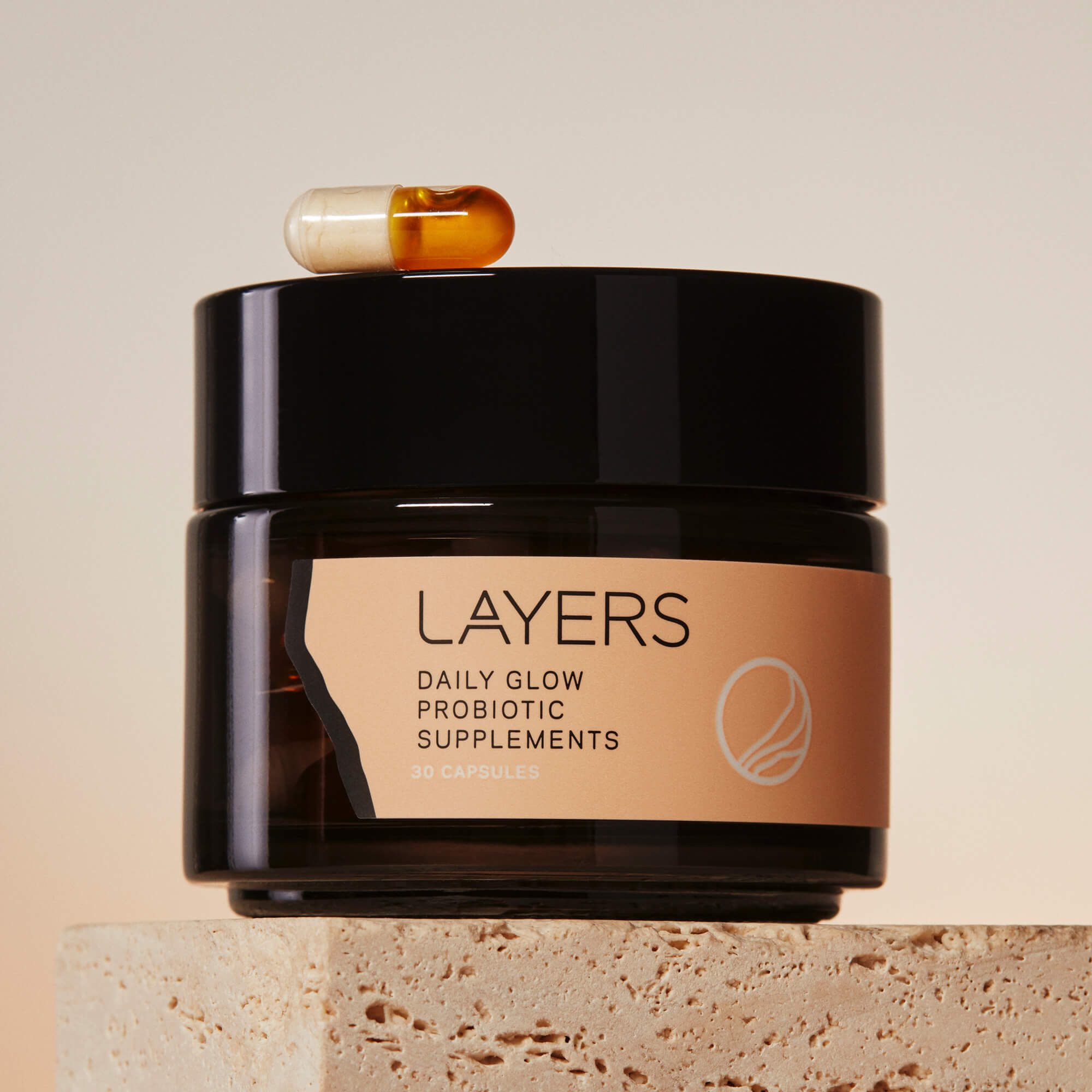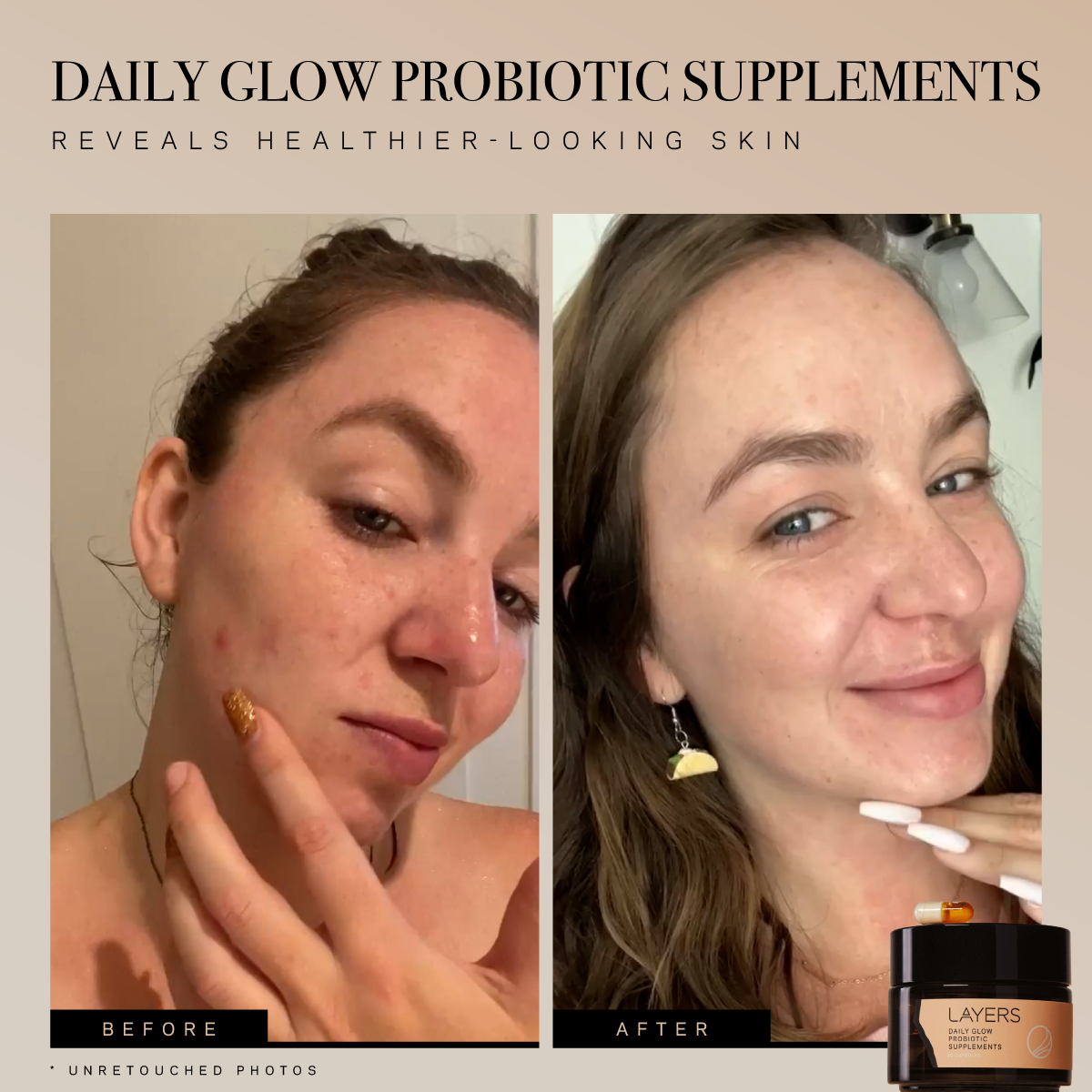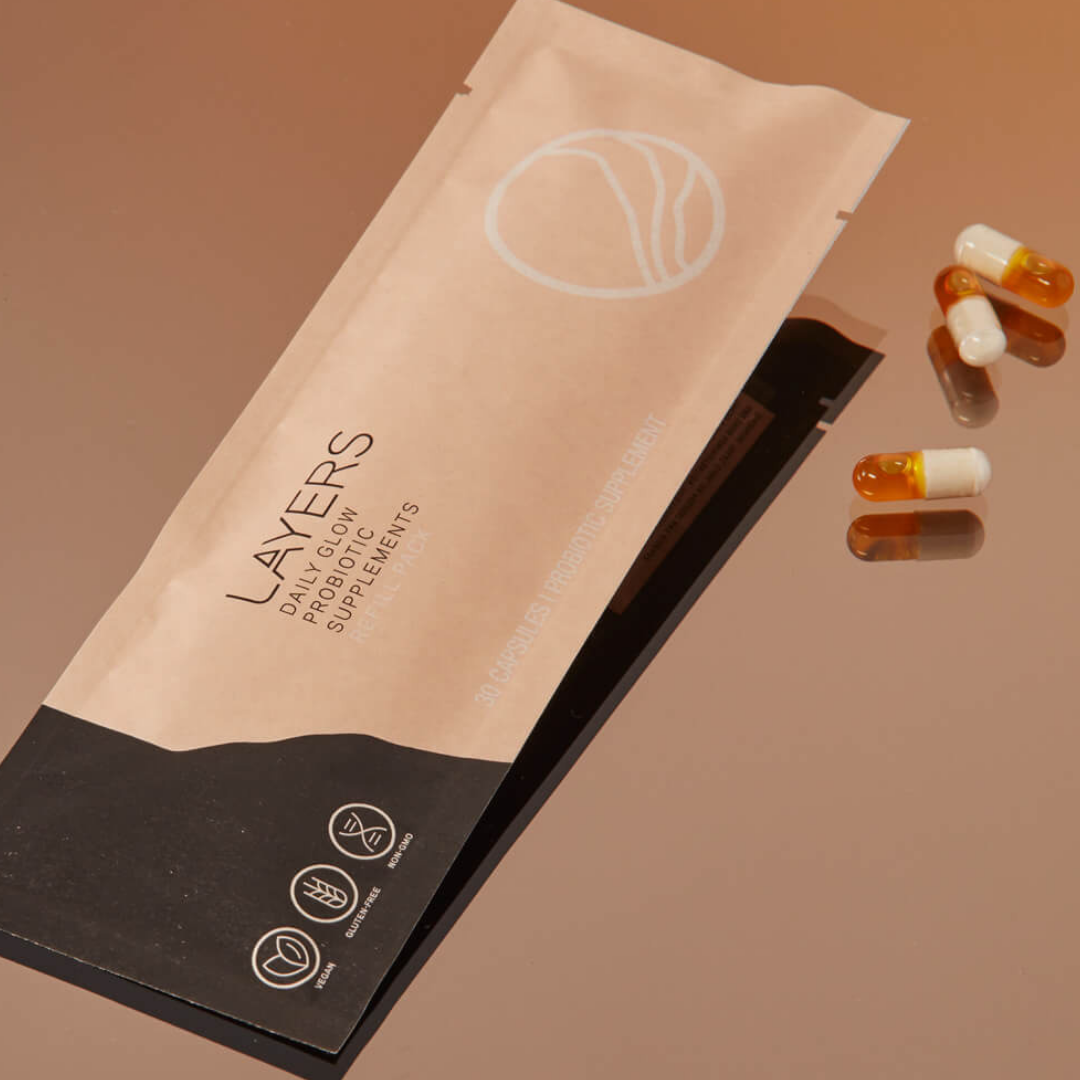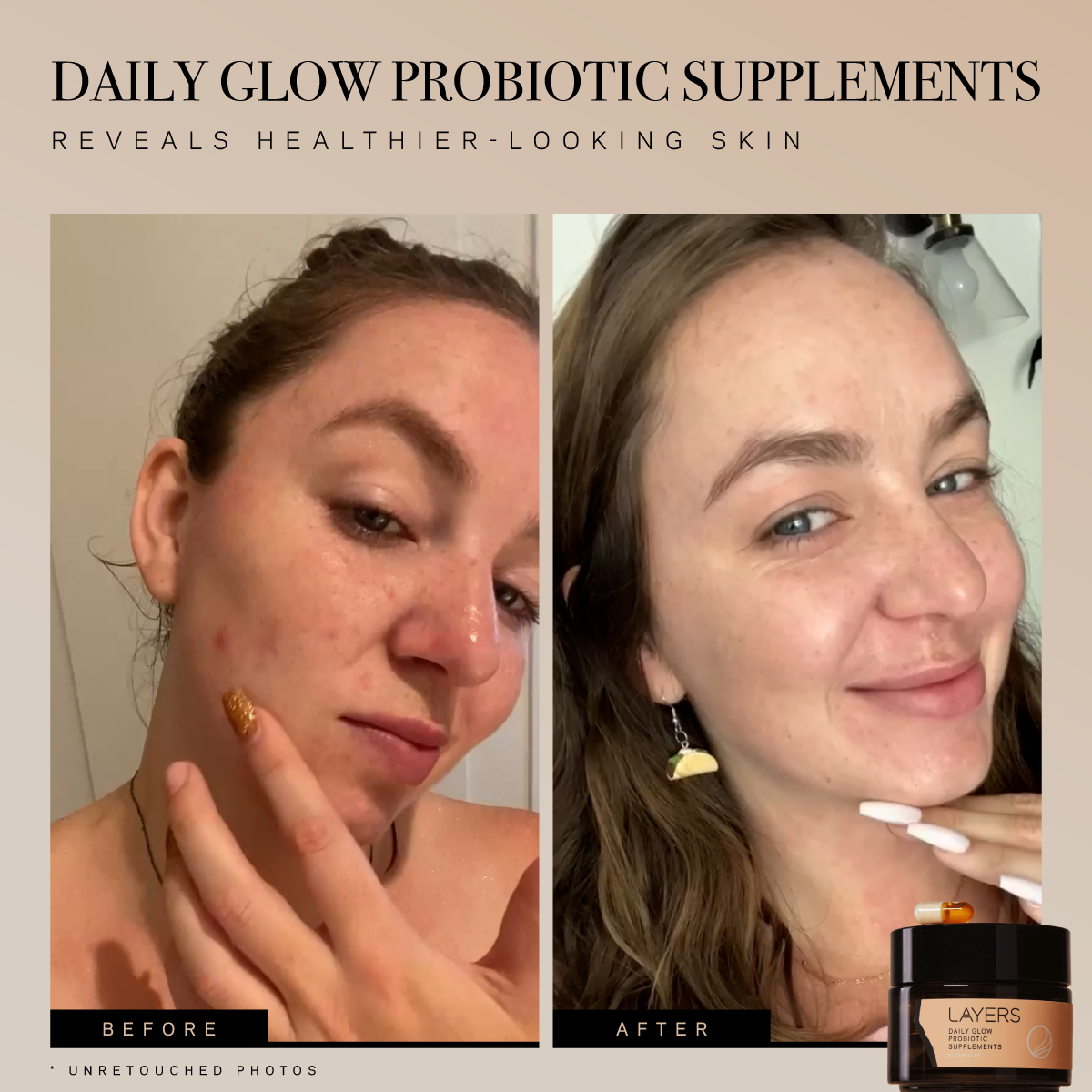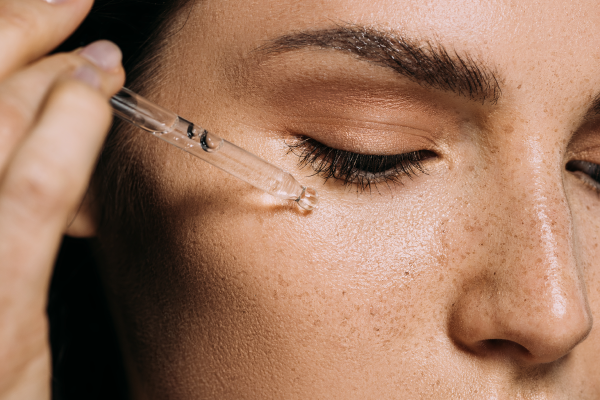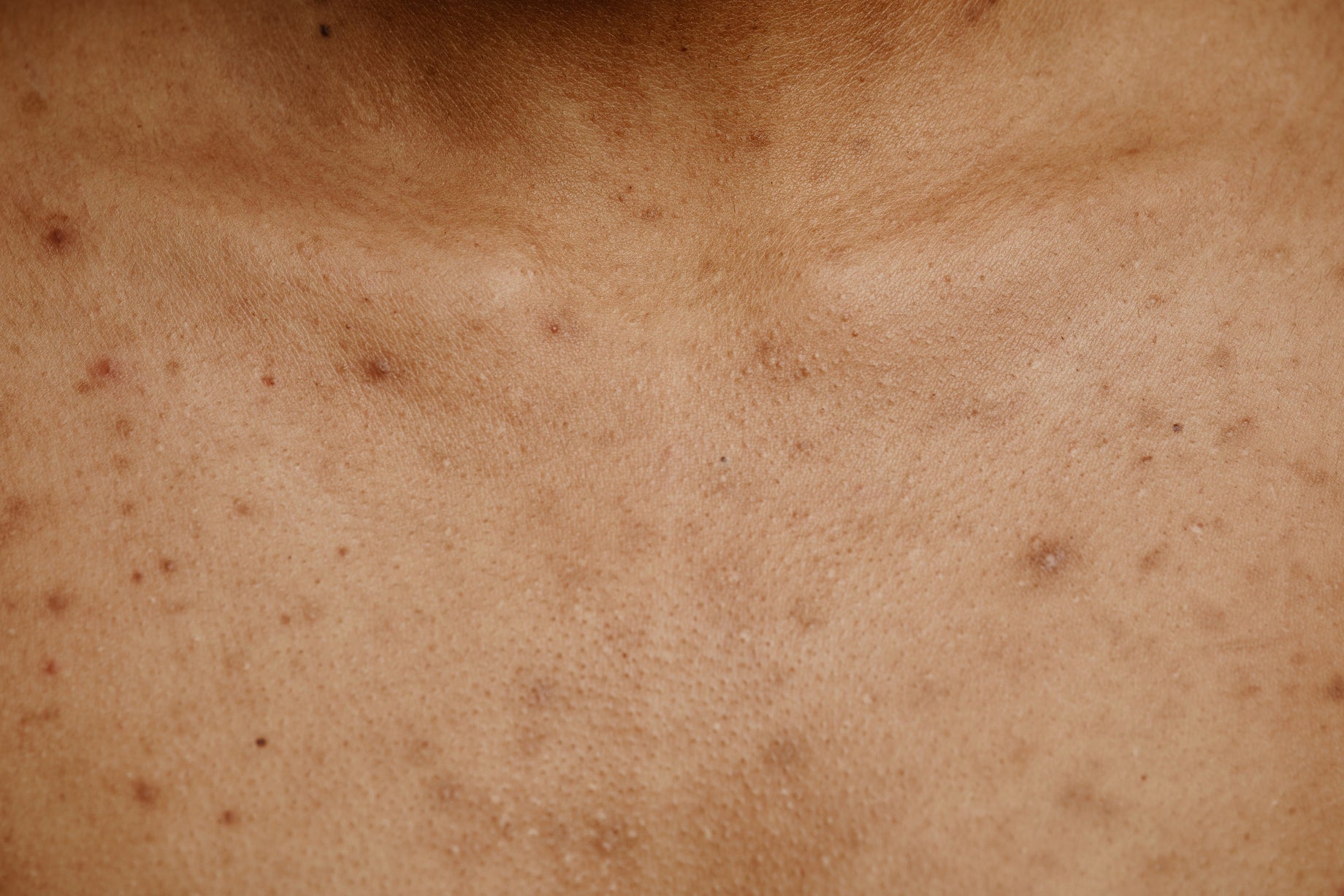Rosacea, redness and inflammation bringing you down? Learn why your skin is out of balance and what you can do to keep it calm, clear, and under control.
Rosacea, redness, and inflammation are, unfortunately for many of us, pretty common. A Yale study estimates that rosacea, which can include symptoms like redness, inflammation, bumpy or patchy skin, and tightness, affects 5% of the world’s population. Not only do these skincare ailments cause discomfort, but they can deeply affect how we feel about our appearance and self-confidence.
WHAT CAUSES REDNESS AND INFLAMMATION?
These conditions often stem from a mix of genetic, environmental, and lifestyle factors. Pinpointing the actual culprit isn’t just about managing one trigger. The intersecting nature of all of the above makes these pesky conditions hard to manage. While the direct effects appear primarily on the surface of the skin, the root causes often go deeper.
THE MICROBIOME AND THE GUT-SKIN AXIS
Beyond the epidermal layer is where the real answers lie, because the complexity of these conditions points to an overall imbalance in the skin’s microbiome. That can include external environmental factors like climate and the skincare products you use, but there’s more to it. It’s fundamentally about your gut health and your body’s inflammatory responses.
The key to effectively treating these conditions involves a multi-faceted approach- but don’t worry. “Multi-faceted” doesn’t have to mean complicated. It’s really just an invitation to take a more holistic approach to your overall health. And that starts with supporting the microbiome.
WHAT IS THE GUT-SKIN AXIS?
The gut-skin axis refers to the close relationship between gut health and skin health. Recent studies have emphasized the importance of the gut-skin axis in maintaining skin health, showing a profound connection between the microbiome in our gut and the state of our skin. The gut is home to trillions of bacteria, both beneficial and harmful, which together play a crucial role in managing inflammation, immunity, and overall well-being. When this balance is disrupted, a condition known as dysbiosis occurs, triggering systemic inflammation. The visible signs manifest as redness, patchy or dry skin, acne, and rosacea.
Taking steps to better support a healthy gut microbiome will go a long way toward improving the health of your skin. A balanced microbiome helps regulate immune responses, thus preventing overreaction, AKA inflammation. It also protects your skin barrier.
WHAT TO DO: Balance your gut microbiome by incorporating more fiber and prebiotic foods into your diet. Reach for leafy greens, oats, bananas, and garlic. Fermented foods like yogurt, sauerkraut, kimchi, and kefir help replenish healthy gut bacteria in the gut, ultimately supporting clearer skin.
PROBIOTIC STRAINS THAT HELP YOUR SKIN
Probiotics are well-known for their gut health benefits, and we’re learning more every day. By isolating specific strains, scientists have been able to identify their individual roles, including how they can improve skin health.
Certain strains have been shown to soothe inflammation, others help skin hold onto moisture, and others help our microbiome maintain balance. Using the right strains, either orally or topically, can bolster skin health by reducing the symptoms associated with rosacea and other inflammatory skin conditions.
Probiotic Strains for Skin Health:
-
Lactobacillus Rhamnosus GG: Known for its potent anti-inflammatory effects, this strain can help reduce inflammation markers in the body. Studies have shown it may help prevent skin reactions triggered by stress.
-
Lactobacillus Plantarum: This strain helps strengthen the skin barrier by protecting against environmental irritants. It’s been shown to effectively reduce redness and irritation, common symptoms of rosacea.
-
Bifidobacterium Bifidum: This strain helps support the skin barrier and maintain hydration. These factors are crucial in preventing flare-ups and managing dryness, both associated with inflammatory skin conditions.
-
Lactobacillus Acidophilus: This strain helps balance the skin’s natural microbiome, reducing the risk of inflammation and redness. It can help control outbreaks and promote clearer, calmer skin.
WHAT TO DO: Add probiotics to your skincare routine. Probiotics can be taken as dietary supplements or applied topically. For topical application, you can find gentle cleansers, nourishing serums, and hydrating moisturizers that contain probiotics. Look for products that contain these beneficial strains, and use them regularly for best results.
FOCUS ON ANTI-INFLAMMATORY INGREDIENTS
Using anti-inflammatory skincare products is crucial for managing rosacea, combatting redness, and calming inflammation. Strange as it may seem, many ingredients used in the skincare industry can be harmful and irritating to the skin. Clean beauty products with soothing, anti-inflammatory ingredients can minimize irritation while protecting and reinforcing the skin barrier.
Ingredients To Know:
-
Niacinamide: This form of Vitamin B3 is well-known for its anti-inflammatory properties. It strengthens the skin barrier, improves hydration, and reduces redness. Niacinamide is suitable for sensitive skin types and can be used in both serums and moisturizers.
-
Pomegranate Extract: Pomegranates are rich in ellagic acid, a compound known to reduce the production of pro-inflammatory cytokines when applied to the skin. That’s why it’s a star ingredient in our Immunity Moisturizer.
-
Milk Thistle: This spiky plant may look unassuming, but it holds silibinin, a powerful anti-inflammatory agent. As a major polyphenol, silibinin has shown benefits in soothing and preventing common skin conditions like eczema, psoriasis, and dermatitis. Together with pomegranate, milk thistle is a cornerstone ingredient in our Immunity Moisturizer.
-
Aloe Vera: With its cooling and calming effect, aloe vera is highly effective in reducing redness and irritation. Its anti-inflammatory and hydrating properties make it ideal for soothing rosacea and inflamed skin.
-
Green Tea Extract: Rich in antioxidants and polyphenols, green tea extract has natural anti-inflammatory properties that can reduce redness and calm irritated skin. It is especially helpful for reducing visible blood vessels associated with rosacea
WHAT TO DO: Adopt a consistent skincare routine focused on soothing and strengthening the skin. Here’s an effective anti-inflammatory skincare regimen we love:
-
Gentle Cleanser: Choose a sulfate-free cleanser with a low pH to prevent stripping the skin of its natural oils.
-
Serum: Apply a serum with anti-inflammatory ingredients, such as niacinamide or probiotics, to address redness and strengthen the skin barrier.
-
Moisturizer: Choose a lightweight, fragrance-free moisturizer with ingredients like aloe vera or colloidal oatmeal to lock in hydration and protect the skin barrier.
-
Sunscreen: Daily sun protection is essential, as UV exposure can exacerbate redness and trigger rosacea flare-ups. Look for a mineral sunscreen with zinc oxide, which is often gentler on sensitive skin.
Treating redness, inflammation, and rosacea requires a thoughtful approach that goes beyond the surface level. By supporting the gut-skin connection, incorporating beneficial probiotic strains, and using anti-inflammatory skincare products, you really can have a calmer, clearer complexion. With the right approach, you can improve not just the appearance of your skin, but also your overall health and wellbeing.

